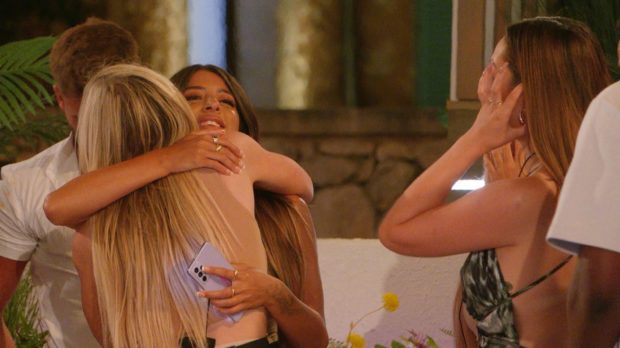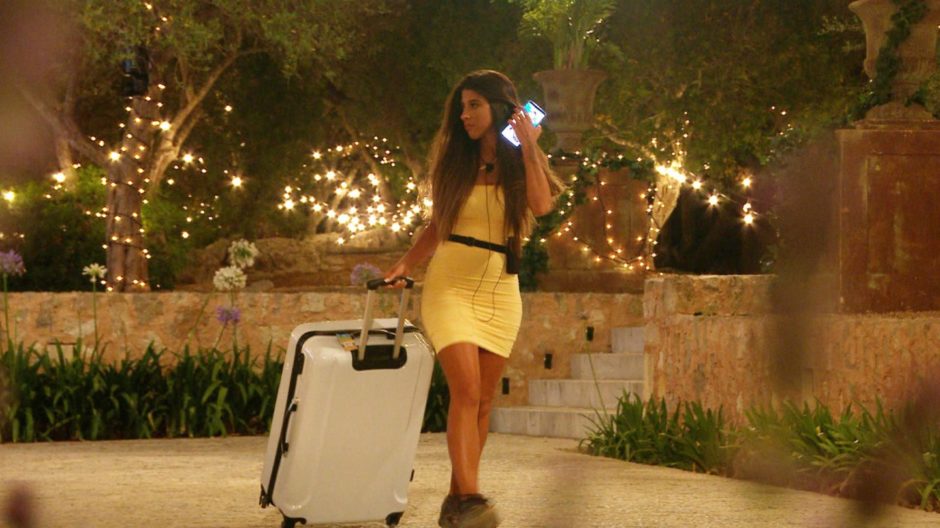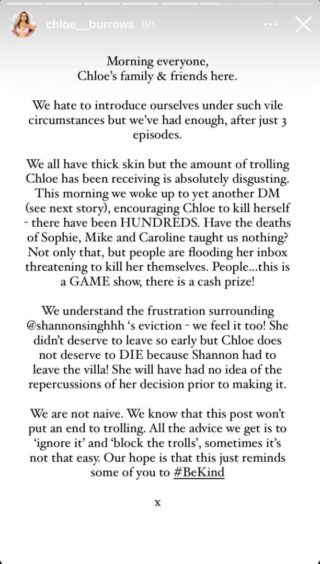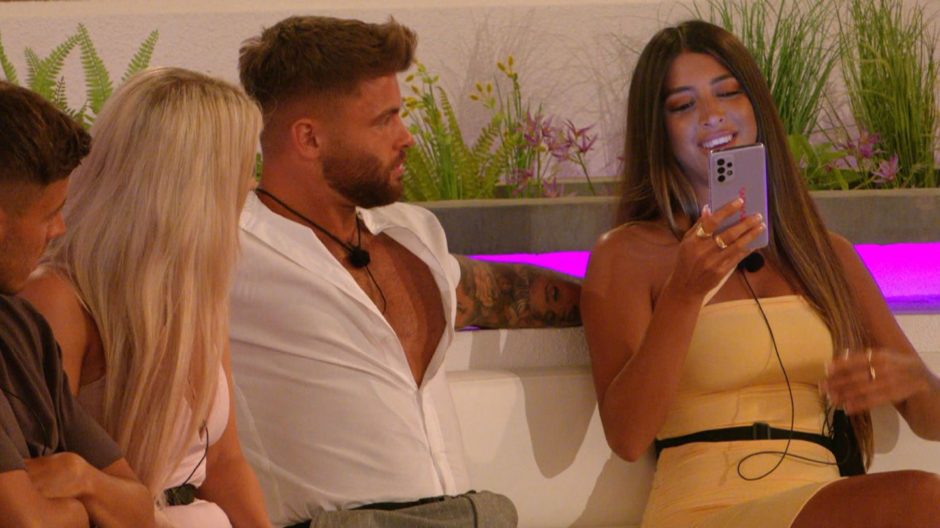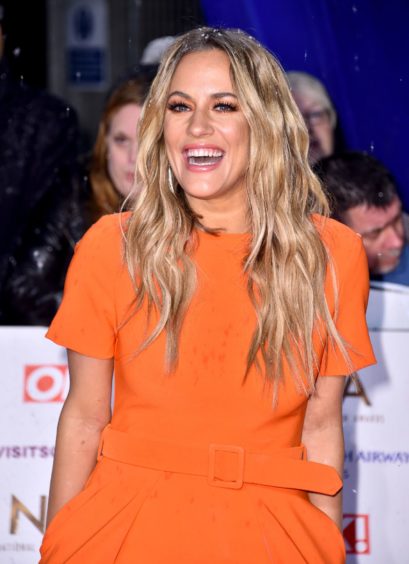I watched Love Island this week. Finally. Well, it was my first time and I wanted it to be special.
Pals – sensible, clever, adults – have been banging on about the reality TV juggernaut for years now.
But it was the presence of a Scot – Shannon Singh from Glenrothes – that persuaded me to take the plunge.
It’s a truth universally acknowledged that if you want to liven up any social gathering you can do a lot worse than throw in a Fifer or two.
And by all accounts Shannon,22, came across as a good sort. Head switched on, fun, genuine, decent.
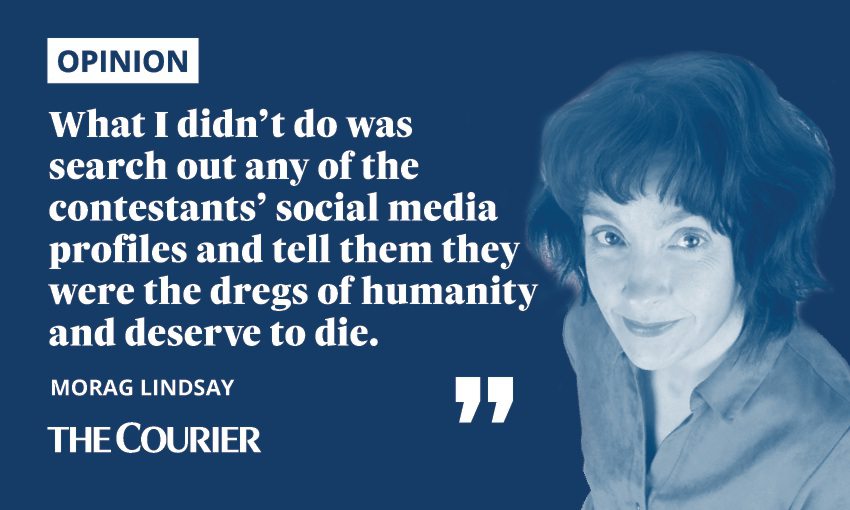
A shame then that by the time I remembered to turn on the telly on Wednesday night, she’d been kicked off in a “bombshell dumping” after just 48 hours.
And instead I was left trying to puzzle out the messy aftermath of a drinking game.
A blonde lady with very straight hair was telling a northern man with very white teeth what was wrong with his personality, while another man called Chuggs, who has a business selling bucket hats, was making his grand entrance
It was like being in the queue for the chippy at pub kicking out time and I’m well past all that shouty drama so I watched a few otter videos on Youtube and called it a night.
Honestly it’s not you, Love Island, it’s me.
What I didn’t do was search out any of the contestants’ social media profiles and tell them they were the dregs of humanity and deserve to die.
Which just goes to underline how old fashioned and out of touch I am because it turns out that’s all the rage now too.
Within hours of Shannon Singh’s departure, fellow contestant Chloe Burrows was receiving hundreds of death threats because she had inadvertently contributed to her getting the boot.
That prompted her friends and family to release a statement on Thursday pleading with people to stop.
Shannon herself had spoken about the abuse she’s had to deal with before going on the programme, saying in one interview: “I did a live stream on social media and got trolled – being called racist remarks and loads of stuff.
“Social media has given people a voice and it’s not necessarily a nice one.”
Social media and stardom go hand in hand
Love Island, in which a group of hot single people are pitched into a villa in Mallorca and encouraged to pair off, is the reality television phenomenon of our times.
The 3.3 million viewers for the opening episode of this seventh season is down on previous record highs but it’s still on a scale most programme makers and advertisers can only dream of.
And social media has been absolutely crucial to its success.
There’s little point going on Twitter when it’s on if you’re not watching but for fans it has made for a much more enjoyable communal experience.
It’s opened up a world of opportunities for contestants too.
Shannon’s early departure might have been disappointing for her and her admirers but she is expected to do very well out of sponsorship opportunities, thanks to her burgeoning following on Instagram and elsewhere.
Let’s not ignore the big troll shaped elephant in the room though.
Social media has also made participants much more of a target for hate.
When the first seasons of Big Brother aired viewers had to stand outside the house on a Friday night with a crudely written slogan written on a piece of cardboard if they wanted to abuse one of the housemates.
Now it’s just a matter of popping onto their feeds, probably under an assumed name, and posting all manner of vile attacks.
A message from #LoveIsland pic.twitter.com/rENOJYqFm9
— Love Island (@LoveIsland) July 1, 2021
Our reporter Saskia Harper spoke to a psychologist this week about the programme makers’ duty of care to protect contestants’ mental health, including being alert to signs that they were vulnerable due to trolling in the past.
ITV also issued a plea across social media asking viewers to be respectful before the new series started and another on Thursday after Chloe Burrows came under attack.
Love Island part of bigger issue
It’s Love Island that is getting the heat this week, but this is a far bigger problem.
And there was another story that didn’t get the same headlines but is potentially much more significant.
Four of the world’s biggest social media platforms — Facebook, Google, Twitter and TikTok — said on Thursday they were taking action to improve their services to make women safer online.
They were responding to an open letter from figures such as Emma Watson, Gillian Anderson, Ashley Judd and Annie Lennox, and statistics showing 38% of women have experienced online abuse — 45% if you focus in on the more prolific Gen Z and Millennial users.
I'm wearing this tee in support of women around the world. For every post tagged with #PowerToChange, @WomenforWomen & @NETAPORTER between now & #InternationalWomensDay (8th March), NET-A-PORTER will donate $1 to @WomenforWomen.
You can get yours here: https://t.co/z9YBFNO7u5 pic.twitter.com/Shft7CKp7Z
— Gillian Anderson (@GillianA) March 1, 2021
Measures could include giving women more control over who can follow them, better filters for weeding out abuse and streamlined methods of reporting it.
In their appeal to the trolls to stop sending death threats, Chloe’s friends and family urged people to be kind.
It’s a reference to the hashtag which became popular after Caroline Flack, the former Love Island presenter, took her own life last February.
Her death is one of three suicides that have been linked to the show.
The abuse being dished out this week suggests it’s going to take more than a hashtag to fix this particular problem.
And if we can’t be kind, maybe we’ll have to be made to behave.
Action by the social media giants is long overdue, but it’s a start.
